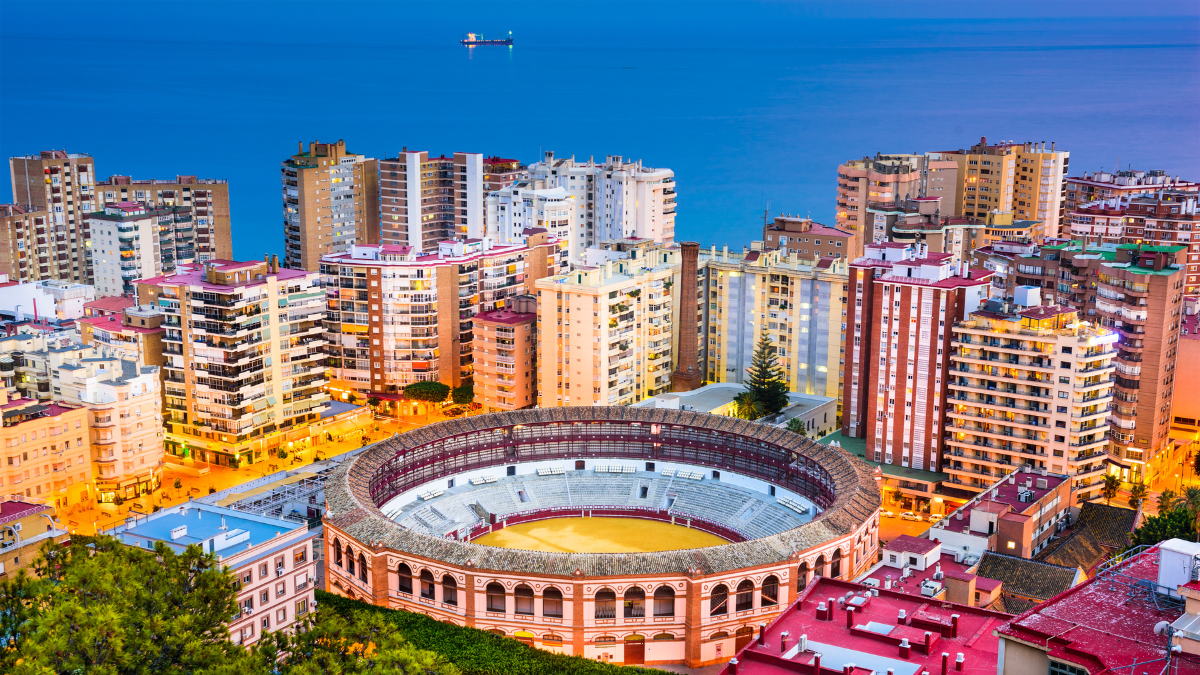Best Places to Buy Real Estate in Europe – Part 1
If you want to invest as an expat or high-net-worth individual, which is what i specialize in, you can email me (advice@adamfayed.com) or use WhatsApp (+44-7393-450-837).
Introduction
Have you ever wondered how to buy real estate property in Europe, especially as an expat?
If so, then this article is specifically created for individuals like you.
Although the European housing market has experienced a significant rise during the past decade, foreigners have been showing interest.
Especially comparing the dollar with the euro, the housing market became more affordable than it used to be.
It is not easy to purchase a property abroad as there may be obstacles related to it.
For example, some areas in Europe are still known to have steep prices for both commercial and residential real estate.
Nonetheless, there are still some places that are known to offer affordable housing to foreigners.
Such places are even known to be good in terms of economic growth as well as low inflation rates.
Let us now have a detailed look at each of the regions that are deemed best for buying real estate as an expat.
Portugal

Portugal ranks among the best places in Europe to buy a property as a foreigner.
Portugal Golden Visa
First of all, I’ve already mentioned the Portugal Golden Visa several times.
If you want to access all the details regarding golden visas available globally, click here.
The Portuguese Golden Visa initiative stands out as a highly favored investment immigration scheme in Europe.
Those who secure a Portuguese Golden Visa gain the privilege to reside, work, and pursue education in Portugal alongside their family members.
To be eligible for the Portugal Golden Visa through real estate investment, the requirement is as follows:
— Acquire a property valued at a minimum of €500,000. If the purchase is made in a low-density area, the required investment is €400,000.
Portugal is also part of the Schengen Agreement, which allows you to travel to all the countries in the Schengen area without a visa.
This happens to be a great advantage if you seek residency while searching for a property in Europe.
Other Benefits
Apart from the golden visa, there are a vast number of advantages to buying a property in Portugal.
⁃ Diverse Residency Options
⁃ Tax Benefits
⁃ Abundant Golf Courses
⁃ Award-Winning Beaches
⁃ Preserved Natural Beauty
⁃ Political Stability
⁃ High Rental Yields
⁃ Rich Culture
⁃ Accessibility
⁃ Hospitable Locals
⁃ Abundant Sports
⁃ English Proficiency
⁃ Affordable Dining
⁃ Cost-Effective Living
⁃ Top Healthcare
⁃ Affordable Housing
⁃ Exceptional Climate
⁃ Efficient Transportation
⁃ Low Population Density
⁃ Culinary Delights
⁃ Investor-Friendly
⁃ 300 Days of Sunshine
⁃ Business Opportunities
⁃ Innovation and Technology
⁃ Strong Work Ethics
Buying Property in Portugal as an Expat
Purchasing property in Portugal as a foreigner is straightforward and there are no specific restrictions.
Nonetheless, you need to acquire a VAT identification number (NIF), which is “número de contribuinte.”
The NIF is obtainable through a Portuguese bank account or a Portuguese tax office.
Costs of Purchasing a Property
When buying property in Portugal, the primary cost is the down payment.
For a permanent home, it’s a minimum of 10%, and this must come from your savings, not a loan.
If it’s a secondary residence, you’ll need a 20% minimum deposit. Non-resident mortgage applicants typically receive 60-70% financing.
Taxes are another consideration.
Use the IMT and IS Simulator by APEMIP to calculate the municipal property transfer tax (IMT) and stamp duty (IS).
Bank commissions vary, covering property evaluation, mortgage application, and other expenses, differing from bank to bank.
Regarding property deeds, choose a notary, registry office, or authenticated private document that suits your situation.
Registry office procedures typically cost around 700 euros, plus certificates.
In 2020, the average property price in Portugal was 150,000 euros. For a 90% mortgage, expect costs like:
⁃ Deposit: 15,000 euros
⁃ Bank fees (approx.): 1,500 euros
⁃ Taxes (approx.): 3,060 euros
⁃ Registering deeds (approx.): 1,045 euros
⁃ Total costs (+/-): 20,600 euros
Portugal’s Property Market
The real estate market in Portugal continues to grow at a stable pace.
In 2023, the average house price is €2,500/sq.mt to €2,950/sq.mt showing a nearly 7% increase from the previous year.
Nonetheless, one of the major aspects to be considered regarding the housing market is that the prices vary by region.
There could be a huge difference between the prices in the metropolitan cities compared to lesser developed areas.
Best Places to Buy
⁃ Cascais
⁃ Algarve
⁃ Lisbon
⁃ Porto
⁃ Alentejo
Cheap and Expensive Areas
When searching for budget-friendly places to rent or buy property in Portugal, several regions stand out as affordable options. Here’s a breakdown of these areas:
Cheapest Places to Buy
Ideally, a property portal, identified the most affordable places to purchase property in Portugal.
The data, published in May 2022, highlights these cost-effective options:
⁃ Penedono, Viseu [Central Portugal]
⁃ Fornos de Algodres, Guarda [Central Portugal]
⁃ Vila Velha de Ródão, Castelo Branco [Central Portugal]
⁃ Mêda, Guarda [Central Portugal]
⁃ Sernancelhe, Viseu [Central Portugal]
⁃ Figueira de Castelo Rodrigo, Guarda [Central Portugal]
⁃ Nisa, Portalegre [Alentejo]
⁃ Pinhel, Guarda [Central Portugal]
⁃ Gavião, Portalegre [Central Portugal]
⁃ Idanha-a-Nova, Castelo Branco [Central Portugal]
⁃ Armamar, Viseu [Central Portugal]
⁃ Vila Nova de Foz Côa, Guarda [Central Portugal]
⁃ Vimioso, Bragança [Northern Portugal]
⁃ Fronteira, Portalegre [Alentejo]
⁃ Almeida, Guarda [Central Portugal]
⁃ Góis, Coimbra [Central Portugal]
⁃ Celorico da Beira, Guarda [Central Portugal]
⁃ Carregal do Sal, Viseu [Central Portugal]
⁃ Penamacor, Castelo Branco [Central Portugal]
⁃ Sardoal, Santarém [Central Portugal]
Spain

Spain is another great country in Europe, which is known to be the best for property purchase.
Golden Visa
Like Portugal, Spain also has a Golden Visa program that enables real estate investors to get residence.
If you want to access all the details regarding golden visas available globally, click here.
The property purchase requirement to acquire a Spain Golden Visa is as follows:
— Individuals must be able to purchase a property that is worth at least €500,000, which can either be a single unit or multiple units.
Spain is also part of the Schengen area, which makes the residents travel to other countries of the Schengen area without a visa.
However, you must meet the following requirements to be eligible for the Spain Golden Visa:
⁃ 18 years old.
⁃ No history of criminal records.
⁃ Never been refused a Schengen Visa prior to applying.
⁃ Health insurance in Spain.
Other Benefits
Apart from the golden visa, some other great benefits of purchasing a property in Spain are as follows:
⁃ A Land of Beauty and Culture
⁃ Perfect Climate for a Sun-Filled Escape
⁃ Pristine Beaches
⁃ Affordable Living
⁃ Investment Opportunities
⁃ Economic Resurgence
⁃ Fine Real Estate
Buying Property in Spain as an Expat
After choosing a property, you must follow a step-by-step guide to purchasing property in Spain.
— Obtain the NIE Number (Foreigner Identity Number)
This is essential for foreign identification and can be obtained at a Spanish embassy or consulate.
There are two types:
• Temporary NIE for non-residents.
• Resident NIE for those planning to live in Spain.
— Open a Bank Account
A bank account facilitates transactions, including payment of notary fees required in the purchase process.
— Price Negotiation
After selecting a property, negotiate its price with the seller. Check market prices using online valuation sites or hire an estate agent.
— Seek a Mortgage
Once you’ve assessed prices, start looking for a mortgage and decide on the type based on available rates.
— Sign the Reservation Contract
After agreeing on a price, sign a “contrato de reserva” to withdraw the property from further advertising.
— Deposit Agreement
Express your intention to buy by signing a “contrato de arras.” The bank’s lending amount is determined by an official valuation.
— Mortgage Evaluation
The bank will provide a valuation specialist, or you can arrange one yourself.
— Prepare Required Documents
• Nota Simple (property report), available at any Spanish registry office.
• ITE (inspección técnica de edificios) to confirm the building’s structural condition.
• Property Deed (escritura pública).
— Sign the Title Deeds at the Notary
The notary drafts the property deed and agreement, explaining the contract before the official signing.
— Register the Property
Register your ownership in the property registry and pay the property transfer tax.
Costs of Buying Property in Spain
The property transfer tax varies based on the property type:
⁃ Second-hand house: 10%
⁃ New property: 10% VAT + 1.5% new registration fee
⁃ Under 32 years old: 5% VAT
In addition to property transfer taxes, other expenses include:
⁃ Estate agency fees: 2-15% of the sale price
⁃ Legal fees: 1% of the sale price
⁃ Mortgage costs: Property valuation (around 500€) and 1% of the mortgage
⁃ Notary costs: 0.1-0.4% and additional paperwork costs (0.5%). For mortgages, 0.1% for large mortgages and 0.4% for small mortgages.
⁃ Land Registry Inscription Fees: 0.1-0.3% of the declared property price.
Property Market in Spain
Despite a recent increase in interest rates and economic uncertainties, Spanish house prices went up by 7.4% in 2022.
In the Spanish real estate market, properties have an average listing price of $1,200,000, with prices ranging from $490,000 to $70,000,000.
The typical cost per square meter is $4,000/sqm.
Andalusia, Catalonia, the Valencian Community, the Community of Madrid, and the Balearic Islands are particularly popular among those looking to buy second homes.
Best Places to Buy
Some of the best places to purchase a property in Spain have been listed below:
⁃ Costa Del Sol
⁃ Barcelona
⁃ Ibiza
⁃ Madrid
⁃ Mallorca
⁃ Costa Blanca
⁃ Canary Islands
⁃ Valencia
You should remember that some of the places in Spain, which are listed above, may be expensive based on the specific region.
Cheapest Places
Some of the cities in Spain where you can acquire affordable pricing include:
⁃ Lleida
⁃ Castellón de la Plana
⁃ Murcia
⁃ Huelva
⁃ Costa Blanca
⁃ Alicante
⁃ Elche
⁃ Torrevieja
⁃ Orihuela
⁃ Cadiz
⁃ Santiago De Compostela
These places might be a great choice if you want a budget-friendly property in Spain.
France

France has been one of the popular destinations for expats for many years, and acquiring a property in the country can be a great asset.
Benefits of Purchasing a Property in France
Listed below are some of the advantages of purchasing a property in France, especially if you want to live there.
⁃ High Rental Yields
⁃ Increasing Property Prices
⁃ Robust Property Market
⁃ Strong Demand for Real Estate
⁃ Geography
⁃ Climate
⁃ Economy
⁃ Infrastructure
⁃ Quality of Life
⁃ Cultural Heritage
⁃ Lifestyle
⁃ Education
Buying as an Expat
Foreign investors, including non-residents, face no specific restrictions when purchasing property in France.
The essential requirements include having a French bank account and a valid ID.
Costs of Purchasing a Property
In addition to your down payment, you should anticipate the notary’s fees.
These fees are regulated by the government and are based on the property’s tax bracket, but they generally do not exceed 10% of the property’s value.
For properties older than five years, there is a 5.8% stamp duty, while newer homes incur a charge of 0.7% plus VAT.
However, it’s advisable to review your initial contract and pricing because some properties are sold as “toutes taxes comprises (TTC),” which means all taxes are included.
Once you become the owner of a residential property in France, you will also be responsible for pro-rata land tax and local taxes, known as taxe d’habitation.
Property Market in France
Residential real estate properties in France usually cost around USD 0.63 million on average.
The projected residential real estate market value in France is USD 24.93 trillion and it might reach USD 28.93 trillion by 2028.
Best Places to Buy
Let us take a look at some of the best places to buy a property in France.
⁃ Sete
⁃ Marseillan
⁃ Pezenas
⁃ Collioure
⁃ Meze
⁃ Carcassonne
⁃ Uzes
⁃ Perpignan
⁃ Ceret
⁃ Beziers
⁃ Sommieres
Some of the regions located near the places mentioned above are also great for expats who want to invest in French real estate.
Note that some of these properties may come with an expensive price tag, and therefore, you should be wary of it.
Cheapest Places
Some of the cheapest places to acquire real estate in France are as follows:
⁃ Saint-Etienne
⁃ Mulhouse, Alsace
⁃ Limoges, Limousin
⁃ Nimes
⁃ Charente
⁃ Deux-Sevres
⁃ Indre
⁃ Occitanie
These places can be a great choice if you want a property that will not set you back by a hefty amount.
Switzerland

There are no specific programs that allow you to get residency through investments made in real estate.
You should know that buying a property in Switzerland does come with some obstacles, especially for expats.
Since this article is primarily focused on the best places to buy a property in Europe and is not aimed at expats, I’m including it.
Let us begin by discussing the benefits of purchasing a property in Switzerland.
Benefits
There are several benefits to purchasing a property in Switzerland, which include:
⁃ Economic Stability
⁃ Robust Currency
⁃ Strong Demand
⁃ Great Education
⁃ Lifestyle
Buying as an Expat
As I said, foreigners face strict regulations when it comes to buying property in Switzerland.
Depending on your specific circumstances, your options may be limited. You can acquire property in Switzerland if:
— You are an EU or EFTA national with a Swiss residence permit living in Switzerland.
— You hold a Swiss C Permit.
In both of these cases, you enjoy the same property purchasing rights as Swiss citizens.
You can buy various types of properties, like investment properties, holiday homes, commercial premises, and primary residences.
If you possess a Swiss B Permit, property acquisition is possible, but solely for your residency.
Certain individuals falling outside of these categories may face restrictions on property acquisition or may need to obtain a license for the purchase.
Those categories include:
— Non-resident foreigners
— Foreign residents without Swiss work permits (including those employed by diplomatic missions, United Nations agencies, and CERN)
— Individuals on short-term or seasonal work permits,
It’s essential to note that licensing requirements can differ from one canton to another.
Preference is given to applicants seeking to purchase their primary residence and who have resided in the canton for five years or more.
Several consultancies can guide you through the Swiss property-buying process.
Costs of Purchasing a Property
While real estate prices may be steep, the country stands out as one of the economical options when considering property transaction costs.
According to some reports, the total costs borne by the buyer typically range from 0.25% to 3.55% of the property’s total price.
On the contrary, the seller’s costs amount to roughly 3.23% to 5.38%.
Buyer-related expenses include:
— Real Estate Transfer Tax, which varies from 0.2% to 3.3%.
— Registration fee, constituting 0.15% of the cost.
— Notary fees make up 0.1% of the transaction.
Remember that you would also be required to get building insurance while buying a Swiss property.
When you try to sell your property, you will incur costs around 3 – 5% of the total value of the property.
Switzerland’s Property Market
The average residential real estate property price in Switzerland is set at USD 1.26 million.
The projected residential real estate value in Switzerland is said to be USD 5.12 trillion and is expected to reach USD 5.99 trillion.
According to recent data from December 2020, the average cost per sqm for purchasing an apartment in the city center was approximately:
⁃ CHF 13,000 in Zurich
⁃ CHF 13,500 in Geneva
⁃ CHF 14,000 in Lausanne
Best Places to Buy
Some of the best cities close to Zurich, which are known to be the best for purchasing a property are:
⁃ Winterthur
⁃ Wädenswil
⁃ Uster
⁃ Wetzikon
⁃ Dübendorf
⁃ Dietikon
⁃ Horgen
If you are looking for premium properties in Switzerland, then Zurich and Geneva are two great choices.
Lucerne, which is located outside of Zurich, is also a great choice if you want a mix of greenery as well as urban development.
Cheap Places to Buy
Now, let us take a look at some of the cheapest places in Switzerland to buy a property.
⁃ Carouge
⁃ Aarburg
⁃ Büren an der Aare
⁃ Worben
⁃ Reinach
⁃ Lenzberg
⁃ Klignau
⁃ Oftringen
⁃ Kirchberg
⁃ Lenk
⁃ Möhlin
The properties in these places usually range from CHF 600,000 to CHF 750,000.
Germany

Nowadays, Germany is gaining a lot of popularity among expats all over the world.
Furthermore, even foreigners are able to buy property in Germany without too many hurdles.
Benefits of Purchasing a Property in Germany
Some of the common benefits known to apply if you wish to live in the purchased property are:
⁃ Good Climate
⁃ Geography
⁃ Developing Economy
⁃ High Quality of Life
⁃ Infrastructure
⁃ Social Security
⁃ Healthcare
⁃ Free Education
⁃ Low Crime Rate
⁃ Eco-friendly Lifestyle
⁃ Leisure Activities
⁃ Rich Culture and Traditions
⁃ Of course, Great Beer
Buying as an Expat
As I said, any foreigner can easily buy a property in Germany as there are no special requirements or paperwork.
Here’s a step-by-step guide on how you can purchase a property in Germany as an expat.
— Make an Offer
After fixing your budget, property viewing, and finding the right match, it’s time to make an offer that the seller agrees to.
A good real estate agent can help you decide on the right offer.
— Finalize Your Mortgage
Once your offer is accepted, the next step is to finalize your mortgage.
Non-residents may only get a mortgage covering around 60% of the property’s cost, requiring a hefty upfront deposit.
Provide property details, proof of ownership, and your financial ability to meet the mortgage requirements.
Opening a German bank account or using online services like Wise can be helpful.
— Sign the Contract
Your notary will create the sales contract for both parties to sign.
Make a deposit to secure the property while final checks and legal processes occur.
There’s usually a 14-day waiting period between receiving the contract draft and closing the sale for legal checks.
— Payment and Money Transfer
Sign the contract and have the notary register the sale.
Make the payment, and if you’re not in Germany, consider an international money transfer to save on fees.
Wise is a practical choice for cost-effective currency exchange.
— Final Steps
After the above-mentioned steps, you’re almost ready to move in.
Within a month, pay the property sale tax (3.5% to 6.5% of the purchase price) based on your residence status.
Familiarize yourself with the legal requirements during this period.
Costs of Purchasing a Property
When considering buying a property in Germany, the cost varies significantly based on your chosen location.
The following information breaks down property costs per square foot in five major German cities:
— Berlin – USD 785.80 (city center) and USD 526.27 (outside the city center).
— Dusseldorf – USD 647.35 (city center) and USD 530.11 (outside the city center).
— Frankfurt – USD 957.05 (city center) and USD 684.07 (outside the city center).
— Hamburg – USD 840.87 (city center) and USD 541.69 (outside the city center).
— Munich – USD 1,199.26 (city center) and USD 880.55(outside the city center).
Please note that this data was sourced from Numbeo on December 6, 2022, and Numbeo collects real-time cost of living data from city residents worldwide.
When considering all the expenses you’ll incur as a buyer, you should allocate approximately 10% of the property price for various fees and taxes, including:
Property sale tax (Grunderwerbsteuer): Typically, 3.5% to 6.5%.
Notary fees: Usually 1.2% to 1.5%, depending on the situation.
Registration fees: Normally 0.8% to 1.2%.
Estate agent fees: If you agree to share these with the seller, they usually range from 1.5% to 3% (but can go as high as 6%) of the purchase price, plus 19% VAT
Keep in mind that exchange rates can vary by provider.
Ensure you’re not overcharged by using a transfer service that offers the mid-market exchange rate.
Property Market
Germany’s real estate market recently experienced substantial growth, with an average price increase of 10% in 2021.
However, according to recent analyses forecasting the outlook for 2023 and beyond, experts anticipate a slowdown.
It’s expected that overall property prices may decrease by approximately 3.5% in 2023 before stabilizing in 2024.
For those considering living in Germany, the decline in property prices could be viewed as a potential benefit.
Best Places to Buy
Some of the best places to buy a property in Germany have been listed below.
⁃ Lüneburg
⁃ Fürth
⁃ Wolfsburg
⁃ Bamberg
⁃ Landshut
⁃ Saarbrücken
⁃ Chemnitz
⁃ Kaiserslautern
⁃ Greifswald
⁃ Siegen
⁃ Wuppertal
⁃ Cobburg
⁃ Kassel
⁃ Hildesheim
These properties are even known to provide better returns on your investments.
Cheapest Places
Some of the cheapest places to buy a real estate property are as follows:
⁃ Saxony
⁃ Saxony-Anhalt
⁃ Rhineland-Palatinate
⁃ Hesse
⁃ North Rhine-Westphalia
⁃ Leipzig
⁃ Kaiserslautern
⁃ Lüneburg
Bottom Line
I’ve only included five of the best places to buy a property in Europe, and I intend to cover some more in another article.
Buying a property requires attention to various details such as taxes, costs, market value, and so on.
Due diligence is necessary while buying a property as an expat, and therefore, it is better to seek professional services.
If you are an expat or an HNWI seeking professional wealth management services, feel free to contact me.
I strongly hope that the information provided in this article was helpful to you in knowing the best places to buy a property in Europe.
Pained by financial indecision? Want to invest with Adam?

Adam is an internationally recognised author on financial matters with over 830million answer views on Quora, a widely sold book on Amazon, and a contributor on Forbes.



